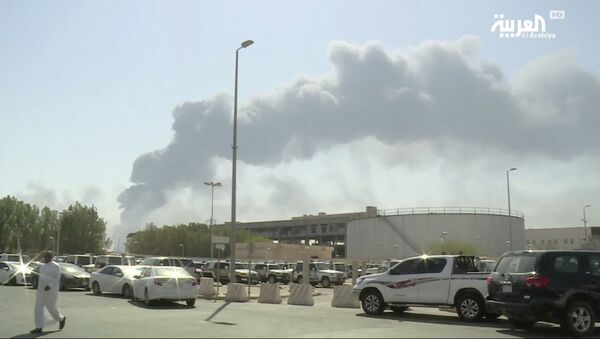The spate of drone attacks on strategic oil infrastructure in Saudi Arabia represent a new trend that shows no signs of slowing, a Norwegian security expert has warned.
Houthi militants in Yemen claimed responsibility for the spectacular attack that hit two major oil fields, Abqaiq and Khurais, which lie deep within Saudi Arabia and are run by the state-owned oil company Saudi Aramco. This means that the kamikaze drones were successfully sent and operated from a distance of 1,000 kilometres.
The Houthi's use of drones has risen markedly in 2019. The group has already claimed responsibility for a total of 58 drone strikes in Saudi Arabia and another eight in Yemen. This marks the third time since May when the Houthis have succeeded in using drones to target major oil infrastructure.
Norwegian security expert Charles Støeng, who has 30 years of experience in anti-terrorist activity and who currently holds a senior security position in the Middle East, stressed that such drone strikes are not only notoriously difficult to protect against, but also represent a major security challenge for Saudi Arabia.
“Due to the speed at which the technology is evolving, Saudi Arabia is struggling to develop an effective defence,” Støeng explained to the news outlet Resett.
According to Støeng, the increased use of long-range drone represents a new phase in the Saudi-Houthi standoff and has lent a new dimension to the conflict.
“Increased range gives the Houthis increased capacity. The drones can be used for reconnaissance purposes and to attack strategic targets deep within Saudi Arabia. It gives the war a new dimension, he says.
Støeng stressed that the use of drone strikes against strategic targets in Saudi Arabia will continue as long as the conflict with the Houthis continues, and may even increase in scope.
“Drone attacks may increase in magnitude in the time ahead. It all depends on how the war in Yemen develops,” he emphasised.
According to Støeng, the rapid development of drone technology worldwide, together with the rather limited anti-drone countermeasures available on the market, will be a major challenge for security in the future.
“Drone attacks of the kind we saw on Saturday in Saudi Arabia will probably develop into a general problem not only in conflict zones, but also in future terrorist attacks anywhere in the world,” Støeng warned.
Following the drone attack this weekend, Saudi Arabia announced a massive cut in production equalling 5.7 million barrels per day, or half of its output, tantamount to 5 percent of the world's total.
While the Houthis in Yemen have claimed responsibility for the attacks, senior US officials including Secretary of State Mark Pompeo stressed the precision and the scope of the attacks suggested it was not made by Houthis and implicated Iran. Tehran has rejected these accusations, Iranian Foreign Minister Mohammad Javad Zarif countered that the US will not stop the war in Yemen by blaming everything on Iran.




